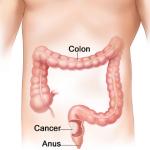For the full article by Dr. Chuck Dinerstein, click here.
Colorectal Cancer
Several years ago, questions were rightfully raised over an apparent racial bias in the calculation of an individual's kidney function, the creatinine clearance.
Another day, another report from epidemiologists on how what we eat kills us; today’s culprit, a perennial favorite, red and processed meat.
Even though colorectal cancer (CRC) is the second-leading cause of cancer death in the US, and even though the





